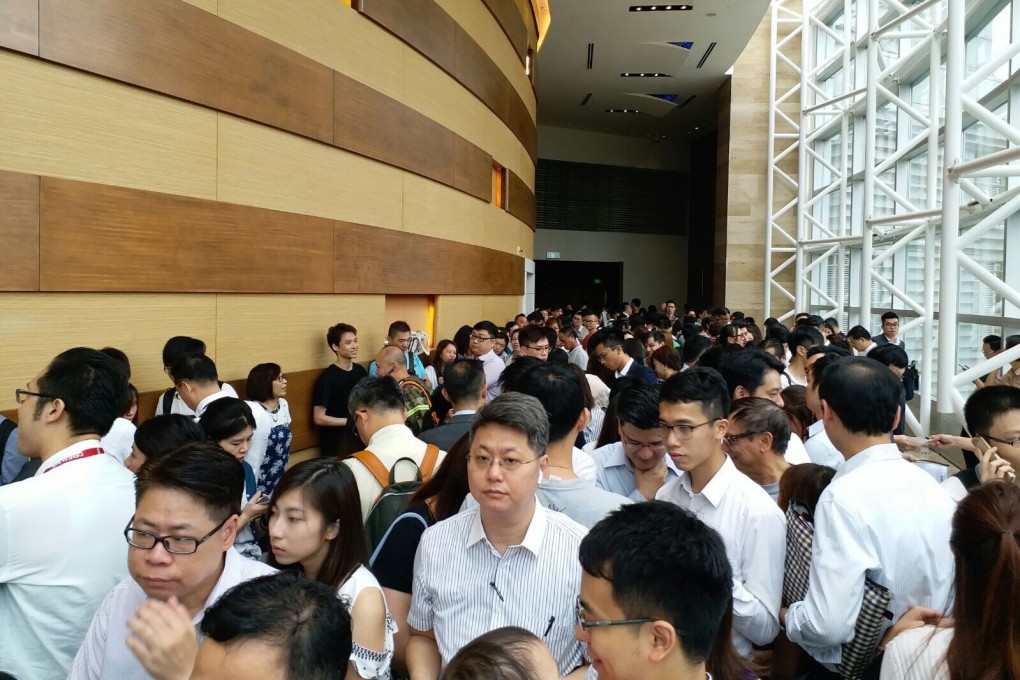Hong Kong takes a tentative step towards paperless home sales, with New World’s proptech platform for The Pavilia Farm
- The traditional, offline registration of interest in Hong Kong’s property market needed four sheets of paper: registration, appointment of sales agent, a copy of a HK$100,000 cashier’s order and a credit card receipt
- The 22,700 people who registered online to bid for the first batch of 391 flats at New World Development’s The Pavilia Farm would have used up 90,800 sheets of paper

Days before Hong Kong’s typical weekend sales launch of residential property, Sammy Po Siu-ming would arm himself with thousands of cashier’s orders for a quaint ritual in the world’s costliest real estate market.
Across 400 branches at Midland Realty, the chief executive of one of the city’s biggest realtors’ network must get ready for customers who walk in without the requisite HK$100,000 (US$12,800) cashier’s order that qualifies them to bid for new property. Po would exchange a cashier’s order for every fee paid by credit card, because agents are forbidden by law to lend money to customers.
“In the past 30 years, the real estate industry has seen very little innovation in property sales, if any at all. Procedures are largely the way they were decades ago, which is laborious and slow,” Cheng said in an email response to a query by South China Morning Post. “The time is ripe for proptech in real estate purchases to provide a hassle-free customer journey for buyers.”
